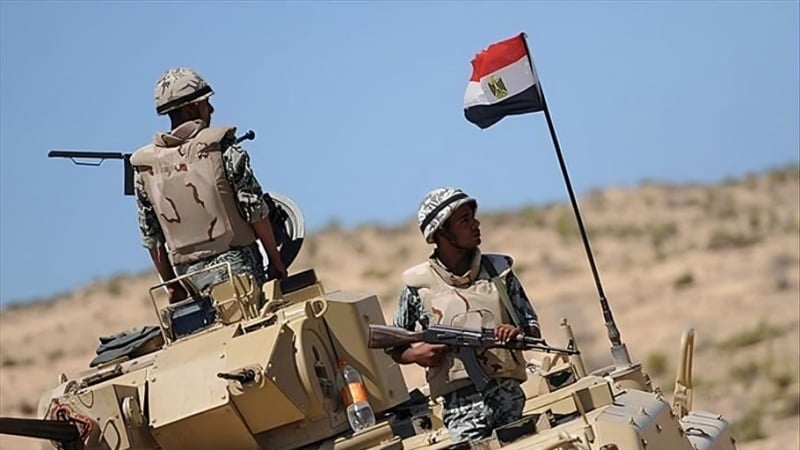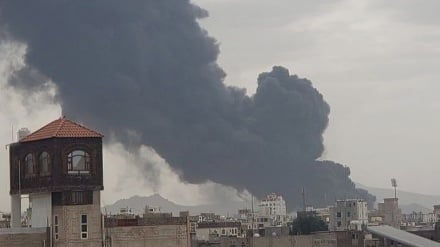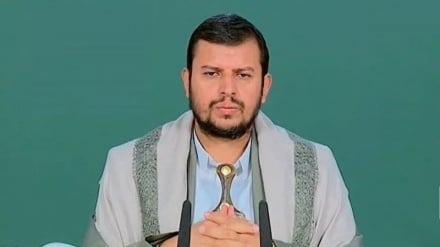Netanyahu asks Trump regarding Sinai Peninsula; could conflict erupt between Israel and Egypt?
-

Egyptian military presence in the Sinai Peninsula
Pars Today – Israel, criticizing Egypt’s policy opposing the forced relocation of Gaza’s population, has asked the United States to pressure Cairo to reduce its military presence in the Sinai Peninsula.
According to Pars Today, Benjamin Netanyahu, prime minister of the Israeli regime, has asked the Trump administration to pressure Egypt to reduce its military presence in the Sinai Peninsula. This request was made due to Israel’s deep concern over the increased Egyptian military deployment in areas that, under the 1979 peace agreement, are supposed to host only lightly armed forces.
Two Israeli officials have also claimed that Egypt is developing military infrastructure in the area, including extending airport runways for fighter jets and constructing underground facilities that are suspected to be missile storage sites, although there is no evidence that missiles are actually stored there. According to them, Egypt has so far not provided a satisfactory explanation for these activities.
The series of developments in West Asia and North Africa indicates that relations between Cairo and Tel Aviv, despite the 1979 peace agreement, are in a fragile state, with trust between the two sides declining—especially as the Gaza war has become the central factor intensifying tensions between Cairo and Tel Aviv.
Tensions between Egypt and Israel have been rising since Netanyahu’s cabinet came to power in late 2022. Netanyahu and Egyptian President Abdel Fattah el-Sisi have not held a public meeting for nearly three years, and since June 2023, there has been no recorded phone contact between them.
Egypt’s main concern is that Netanyahu’s cabinet, during the Gaza war, might attempt to relocate part or all of the two million Palestinians living in Gaza to the Sinai Desert. In response to these concerns, Egypt has increased its forces along the Gaza border and stated that any such move by Israel would be considered a threat to its national security. The Sisi government has also warned Israel against actions that could undermine the peace agreement.
Strikingly, Netanyahu has publicly criticized Egypt for not accepting Palestinians from Gaza, accusing Cairo of “holding Gaza residents in a war zone against their will.” In response, Egyptian Prime Minister Mostafa Madbouly, noting that the Egyptian government has clear plans to address any potential consequences of the situation in the Palestinian territories and is prepared to handle any scenario, emphasized that Egypt will under no circumstances allow the forced relocation of Palestinians or the destruction of the Palestinian issue.
These tensions are unfolding while, following an Israeli airstrike on Hamas headquarters in Doha, Qatar, in early September, Sisi sent a direct message to Israel, warning that Netanyahu’s government policies threaten the peace agreement with Egypt and make further normalization of relations with regional countries impossible.
According to Egyptian observers and analysts, under Benjamin Netanyahu’s leadership and his increasingly aggressive policies, a military confrontation between Egypt and Israel is highly likely to erupt, though the timing has not yet arrived. This belief has been reinforced by Israel’s recent attack on Qatar, which, alongside Egypt and the U.S., had been acting as a mediator to end the Gaza war and secure the release of Israeli captives.
At the same time, Egyptian President Abdel Fattah el-Sisi’s description of Israel as an “enemy” in his speech on Monday, September 15, at the extraordinary Arab-Islamic summit in Doha is considered a significant development and reinforces this belief, as his remarks reflect an unprecedented official stance by Cairo. This is the first time since former Egyptian President Anwar Sadat’s visit to the Israeli Knesset in 1977 that Egypt’s political leadership has publicly referred to Israel as an “enemy.”
Meanwhile, reports indicate the deployment of Egyptian air defense systems in the Sinai Peninsula, along with a significant presence of troops and military equipment in the region. In this context, Major General Mohamed Rashad, former deputy head of Egyptian intelligence, wrote that Israel’s attack on Doha has strengthened Cairo’s determination to take action to protect its territory and national security. He added that Egypt’s proposal to establish a joint Arab military force in response to the attack on Qatar has particularly heightened Israel’s concerns.
Additionally, following Netanyahu’s proposal of the “Greater Israel” plan, which includes parts of Egypt, Cairo officials have become even more sensitive to future actions by Tel Aviv.


